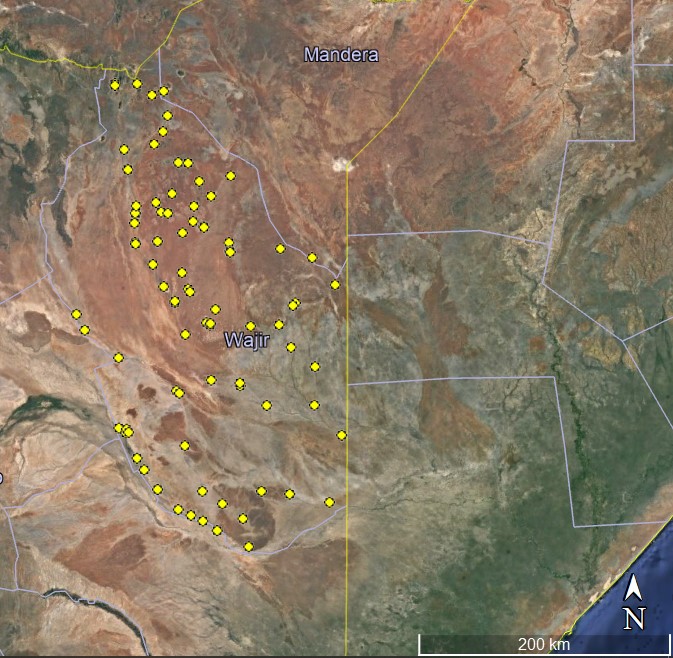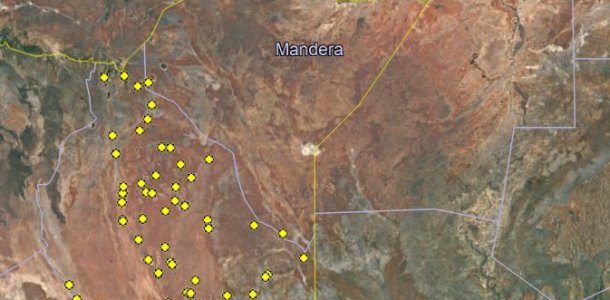Joy Obando and Moses Muriuki
The drylands support sparse settlements and agro-pastoralism which are the key factors that influence water development. In these environments, water is considered limited and intermittent. However, with the need to solve the challenges of water in these dryland environments, there is a tendency towards technical solutions of construction of either water pans or sinking of boreholes or both. While the increased development of water points should lead to increase in water availability and accessibility, these factors remain far from being achieved.
In the case of Wajir county in northern Kenya, most of the boreholes sunk have low yields of 1-2 cubic metres per hour and a majority are considered saline. During the dry season, the salinity in some boreholes such as in Dambas causes abortions in livestock. There is a need to build on existing borehole information and maps in order to create a database that sufficiently informs on water quantity and quality. In Eldas town alone, which covers an area of approximately 3.5km2 with a population of 12,000, there are over ten boreholes (five institutional – police, primary, hospital and two livestock and private). More and more extractions with little to no plans for natural or artificial recharge mean less and less yield and more salinity.
In the early 1980s, grazing areas were demarcated as either wet or dry grazing. This system of grazing supported natural regeneration of pastures and less degradation. However, with the support of increased water points, this system was slowly eroded. Towards supporting sustainable pastoralism there is need for re-thinking and re-establishment of community grazing systems which will involve periodical shutting down of some livestock water-points or barring accessibility of water to livestock.
An integrated water resource management system that involves community grazing, small irrigation farming, rainfed farming and flood based irrigation and groundwater recharge will not only enhance resilience of the resident communities but also support sustainable ecosystems through regeneration and improvement of degraded environments.


